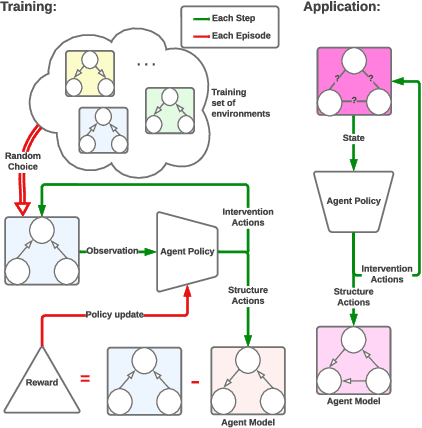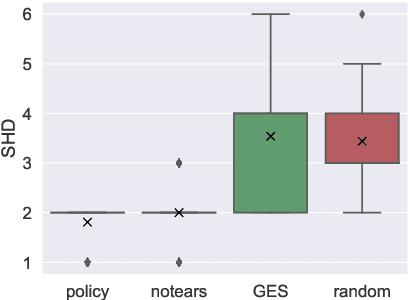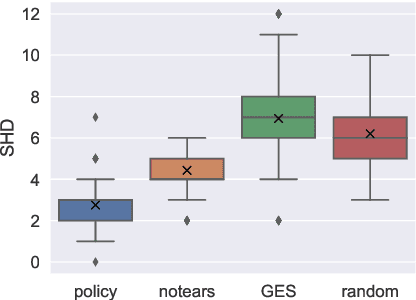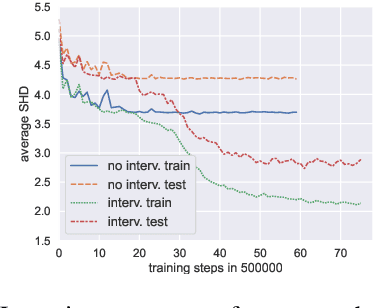A Meta-Reinforcement Learning Algorithm for Causal Discovery
Paper and Code
Jul 18, 2022



Causal discovery is a major task with the utmost importance for machine learning since causal structures can enable models to go beyond pure correlation-based inference and significantly boost their performance. However, finding causal structures from data poses a significant challenge both in computational effort and accuracy, let alone its impossibility without interventions in general. In this paper, we develop a meta-reinforcement learning algorithm that performs causal discovery by learning to perform interventions such that it can construct an explicit causal graph. Apart from being useful for possible downstream applications, the estimated causal graph also provides an explanation for the data-generating process. In this article, we show that our algorithm estimates a good graph compared to the SOTA approaches, even in environments whose underlying causal structure is previously unseen. Further, we make an ablation study that shows how learning interventions contribute to the overall performance of our approach. We conclude that interventions indeed help boost the performance, efficiently yielding an accurate estimate of the causal structure of a possibly unseen environment.
 Add to Chrome
Add to Chrome Add to Firefox
Add to Firefox Add to Edge
Add to Edge